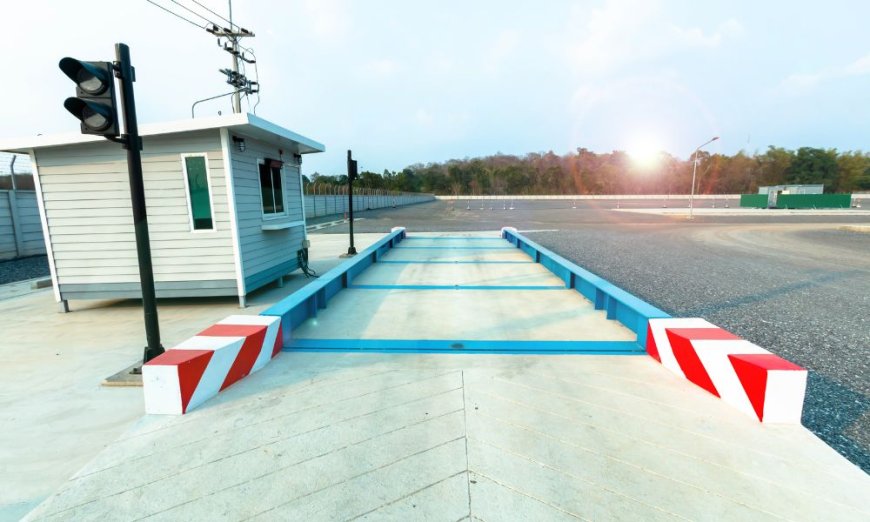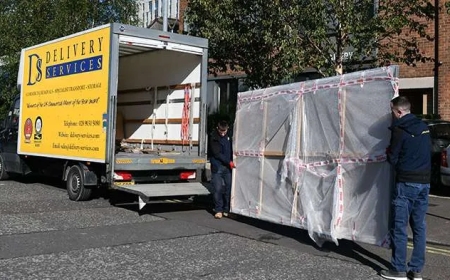Avoid Costly Mistakes: Why Proper Scale Installation Is Essential
Avoid Costly Mistakes: Why Proper Scale Installation Is Essential

In commercial and industrial environments, scales are critical tools for ensuring accurate weight measurements, streamlining operations, and maintaining legal compliance. However, simply purchasing a high-quality scale isn’t enough. The way a scale is installed can significantly impact its performance, safety, and regulatory acceptance.
Whether it's for logistics, agriculture, food processing, manufacturing, or retail, professional scale installation plays a central role in maximising the reliability and lifespan of weighing systems. In this blog, we’ll explore in depth why professional installation matters and how it supports long-term success through accuracy, safety, and compliance.
1. Precision and Long-Term Accuracy
Scales are only as accurate as their installation conditions allow. Even the most advanced weighing systems can yield inaccurate results if installed improperly.
Key Installation Factors That Affect Accuracy:
-
Surface Leveling and Structural Integrity
Uneven or unstable surfaces cause scale platforms to tilt, putting stress on load cells and skewing readings. Professional installers use laser leveling tools and assess foundation stability to ensure the scale sits perfectly flat. -
Environmental Considerations
Factors like vibration from nearby machinery, temperature changes, wind drafts, or even humidity can affect sensitive components. A professional installer evaluates the surrounding environment and may recommend protective enclosures or isolation pads. -
Correct Load Cell Configuration
Scales rely on load cells to convert pressure into readable weight. If these are misaligned or improperly connected, the system won’t function accurately. Expert technicians ensure that every load cell is precisely positioned, wired, and calibrated. -
Initial Calibration and Testing
Right after installation, scales must be calibrated using certified test weights. Professionals perform multiple calibration passes and functional tests to guarantee the system meets accuracy standards from day one.
Without this attention to detail, businesses risk measurement drift, recalibration issues, and inconsistent readings that can affect everything from inventory control to billing accuracy.
2. Safety and Risk Mitigation
Installing a scale isn't just about performance—it’s also about protecting people and property. Poor installation can create dangerous working conditions and potential liability issues.
Risks of Improper Installation:
-
Tipping and Structural Failures
A scale that’s not properly secured can tip under heavy loads, posing a serious hazard to workers, forklifts, and equipment. Heavy-duty scales—such as vehicle or floor scales—require proper anchoring to prevent shifting or collapse. -
Tripping Hazards and Cable Management
Unattended cables, misrouted power lines, or exposed wiring not only risk equipment damage but can cause workplace injuries. Professionals manage cable routing using conduit systems and ensure compliance with electrical safety codes. -
Overload and Misuse Prevention
During installation, technicians assess usage patterns to ensure the scale’s capacity matches real-world demands. This helps prevent structural overload, which could lead to mechanical failure or injury.
By using a certified scale installation service, you reduce the chances of accidents, workplace disruption, and equipment damage, all while promoting a safer, more efficient work environment.
3. Legal Compliance and Industry Standards
In many industries, scales are regulated as legal measuring instruments. This means they must meet strict standards for commercial use, especially when used to determine pricing, weight-based billing, or regulatory reporting.
Professional Installers Ensure:
-
Legal-for-Trade Setup
For scales to be used in buying or selling goods, they must be compliant with the National Type Evaluation Program (NTEP) or similar standards. Installers ensure the scale is installed in a way that supports legal-for-trade certification. -
Documentation and Certification
Professional installers provide comprehensive documentation, including calibration certificates, installation logs, and test results—crucial for audit trails and regulatory compliance. -
Ongoing Maintenance Plans
Some installers offer routine maintenance plans that keep the scale compliant over time through scheduled inspections, calibrations, and repairs.
Neglecting these steps could lead to fines, failed inspections, and even business shutdowns if your weighing systems don’t meet legal requirements.
4. Seamless System Integration and Downtime Reduction
Today’s industrial scales often integrate with inventory systems, ERP software, label printers, or automated machinery. Professional installation ensures all components are configured correctly and communicate smoothly with your broader operational technology.
Benefits of Expert Integration:
-
Proper Connectivity
From Ethernet ports to Bluetooth modules, installers ensure the scale communicates effectively with internal systems and avoids configuration errors. -
Quick Troubleshooting
Professionals conduct full system tests during installation, identifying and fixing software or mechanical bugs that might otherwise cause operational delays. -
Training and User Guidance
Some installers offer training to your staff, ensuring they understand how to operate the system efficiently and prevent misuse or accidental damage.
This prevents unplanned downtime, production halts, and frustrating technical delays, which can be costly in fast-paced industrial environments.
5. Investment Protection and Long-Term ROI
A scale is a long-term investment, and how it’s installed affects how well it performs over its lifespan. Improper installations can lead to constant recalibration, repairs, or even complete system replacement.
Why Professional Installation Pays Off:
-
Reduced Maintenance Costs
A properly installed system experiences less wear and tear, reducing the need for frequent repairs and part replacements. -
Longer Equipment Lifespan
Load cells, terminals, platforms, and mechanical parts last longer when installed under optimal conditions. -
Enhanced Data Reliability
Accurate and consistent data leads to better business decisions, improved reporting, and stronger trust between suppliers, partners, and customers.
Ultimately, investing in professional installation helps you avoid the hidden costs of cheap or rushed setups while ensuring long-term productivity and reliability.
Conclusion
Whether you're setting up a new facility or upgrading an existing weighing system, professional scale installation is an essential step that directly affects your business outcomes. From ensuring pinpoint accuracy to upholding regulatory compliance and maintaining a safe workplace, expert installation lays the groundwork for operational success.
Don’t compromise your investment with shortcuts or subpar setups. Trust an experienced scale installation service to deliver the precision, safety, and peace of mind your business deserves.













































































